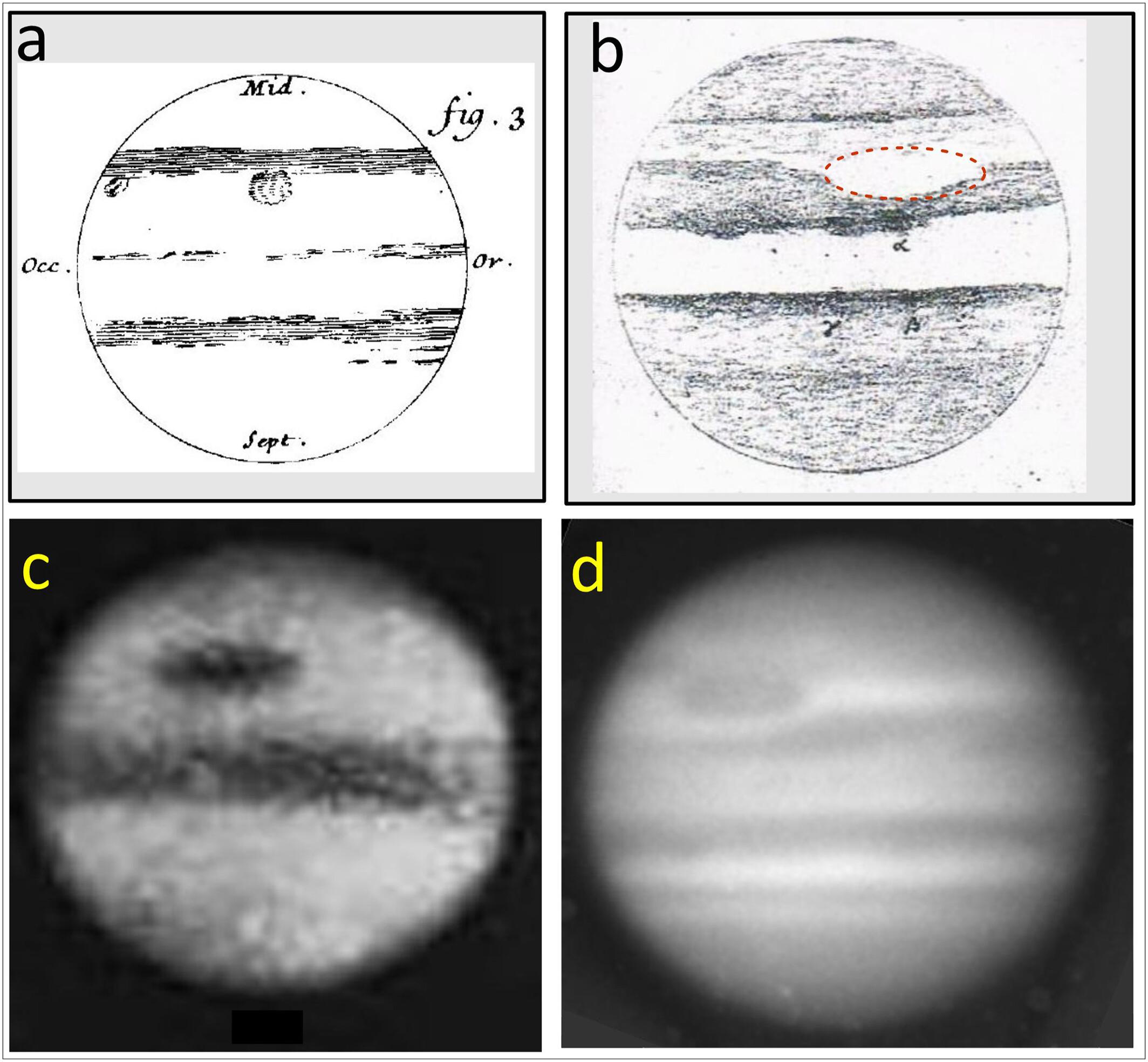Corey S Powell on Nostr: German astronomer Heinrich Schwabe may have observed the birth of Jupiter's iconic ...
German astronomer Heinrich Schwabe may have observed the birth of Jupiter's iconic Great Red Spot in 1851, making the giant storm far younger than commonly believed.
These historical records provide fascinating clues about how weather works on other worlds.
https://agupubs.onlinelibrary.wiley.com/doi/10.1029/2024GL108993 #space #science #astronomy #nature

Published at
2024-06-26 18:14:23Event JSON
{
"id": "a3e973e555deccf22523187e3f6bc19998173e3b5b5ee84a3075152922a6100f",
"pubkey": "04a9e8b47fe3a1ca8be274aed21a295ed0264d221eac39b47a321d5f2890ef1d",
"created_at": 1719425663,
"kind": 1,
"tags": [
[
"t",
"space"
],
[
"t",
"science"
],
[
"t",
"astronomy"
],
[
"t",
"nature"
],
[
"proxy",
"https://mastodon.social/users/coreyspowell/statuses/112684280257100423",
"activitypub"
]
],
"content": "German astronomer Heinrich Schwabe may have observed the birth of Jupiter's iconic Great Red Spot in 1851, making the giant storm far younger than commonly believed.\n\nThese historical records provide fascinating clues about how weather works on other worlds. \n\nhttps://agupubs.onlinelibrary.wiley.com/doi/10.1029/2024GL108993 #space #science #astronomy #nature\n\nhttps://files.mastodon.social/media_attachments/files/112/684/277/873/190/686/original/845854ebe3ab6bf5.jpg",
"sig": "dbb64b6985bf137c8dca54479c8df5487615218d9219bbcac19bfdd33d02f5f1f5bb1c6388bacf2909ea5c6fd68c51ea077836c2b3da6b7823a229a985af5ab4"
}

